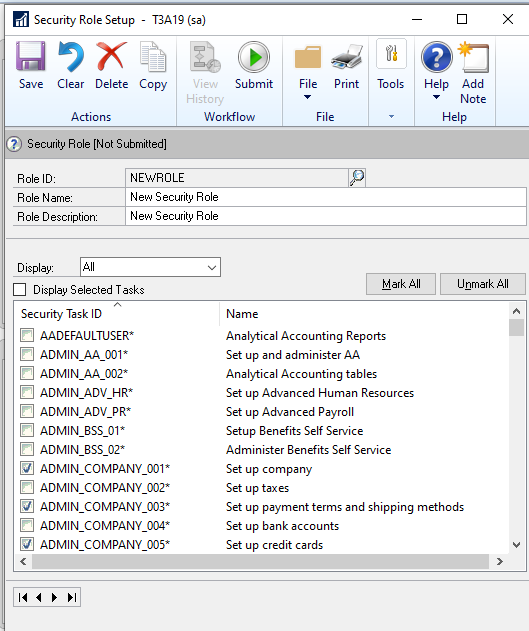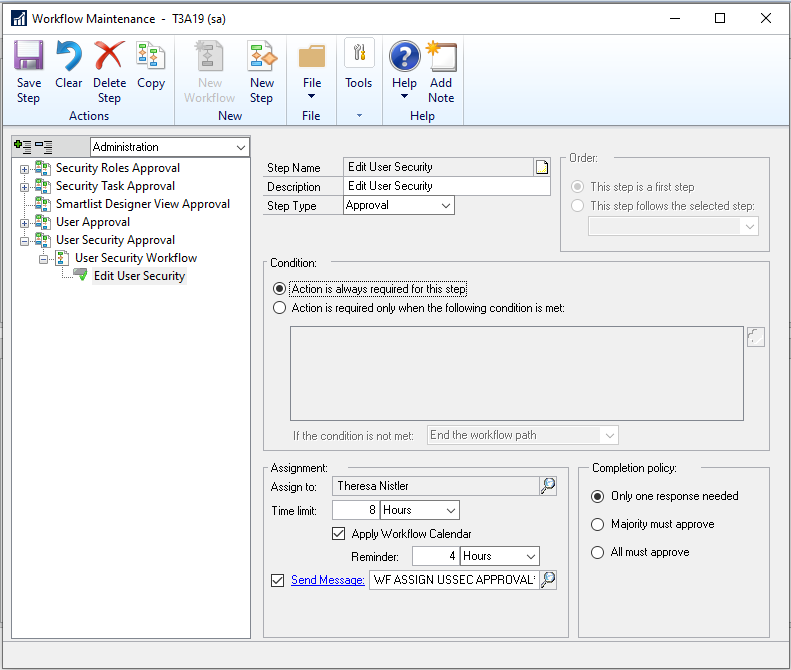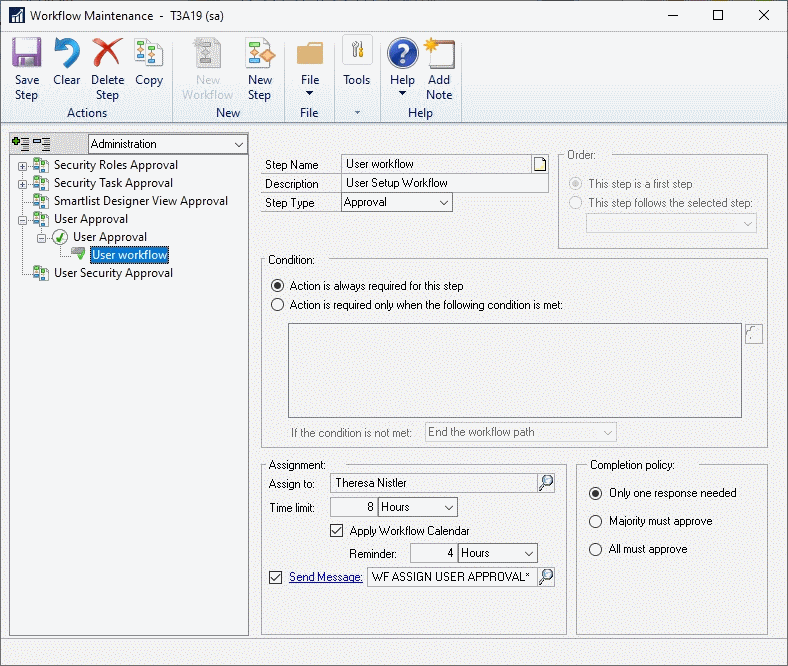 The Inside Microsoft Dynamics GP blog has started a series Feature of the Day posts for Microsoft Dynamics GP “October 2019” Release on which I am following and adding commentary. The index for this series of posts is here.
The Inside Microsoft Dynamics GP blog has started a series Feature of the Day posts for Microsoft Dynamics GP “October 2019” Release on which I am following and adding commentary. The index for this series of posts is here.
The third Feature of the Day is new workflows for Security Role and Task approval.
The last two new workflows are Security Task Approval and Security Roles Approval:
- Security Task Approval lets you edit the operations that are assigned to a task or create a new task; and if the workflow is active, the workflow actions will display on Security Task Setup.
- Security Roles Approval lets you edit the operations that are assigned to a role or create a new role; and if the workflow is active, the workflow actions will display on Security Role Setup.
With these Security Approval workflows, you can require that any changes made in these windows be submitted for review and approval:
No changes made for Security Tasks or Security Roles will be implemented until the workflow task has been final approved.
I’ve fielded lots of questions over the years from clients asking how they can find out who has changed a role or task. These workflows will allow them to control changes with only a limited number of users able to approve a change and make it live.








